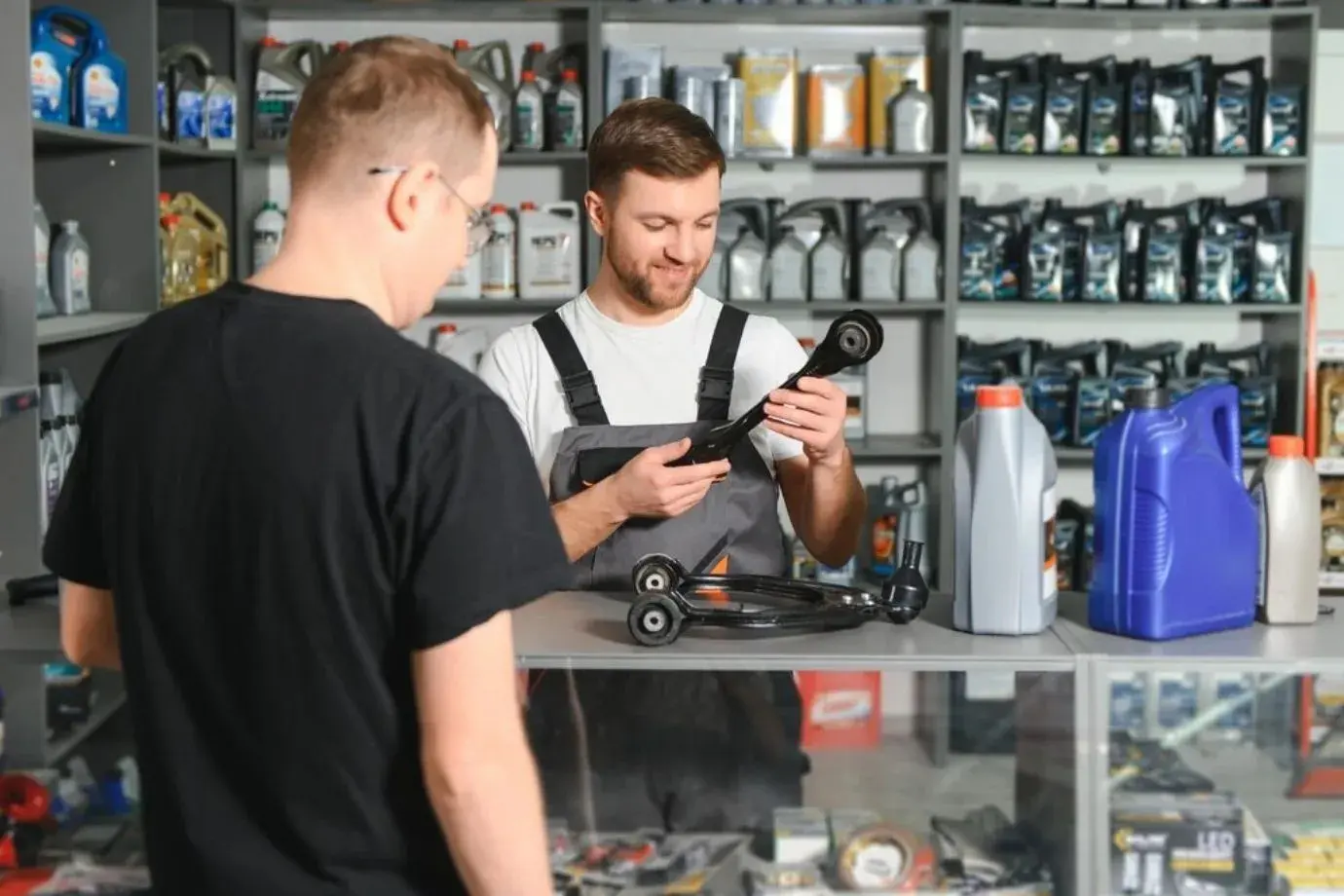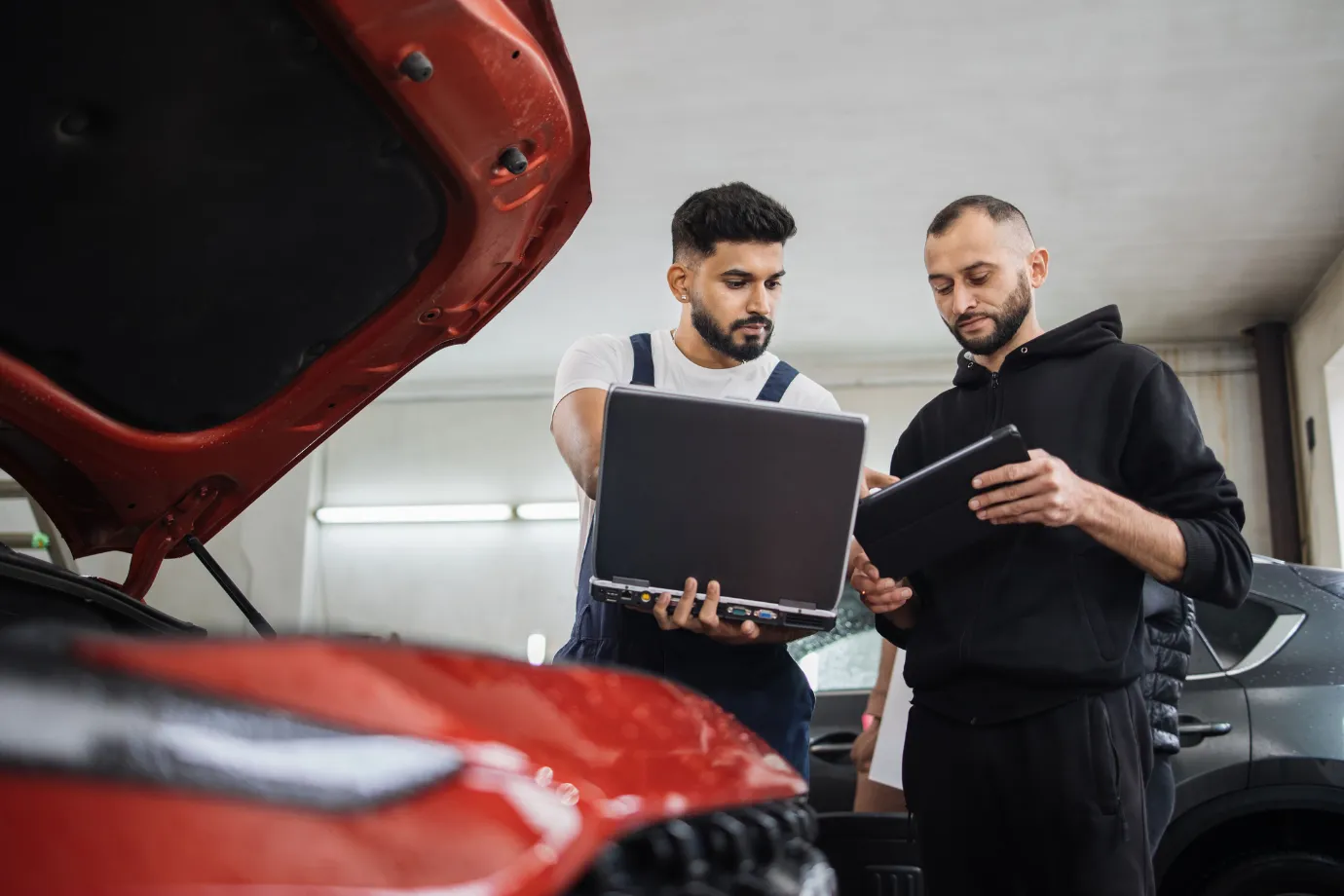The automotive market is experiencing multiple disruptions in the implementation of GenAI, Automation in manufacturing, electric vehicles, and many more. This has brought about new and advanced approaches to the aftermarket segment too. Beyond the conventional practices of routine maintenance and repairs, aftersales services are undergoing a transformative shift influenced by technological advancements, changing consumer expectations, and a broader commitment to sustainability. In this exploration, we will dissect each of the five key trends shaping aftersales customer service in 2025, offering a detailed perspective on their significance and impact.

Digitalization of Aftersales Services:
The relentless march of technology is reshaping how customers interact with aftersales services. The digitalization of aftersales services is not just a technological upgrade; it represents a fundamental shift in customer engagement. Dealerships are leveraging user-friendly mobile apps and web portals to facilitate online scheduling of service appointments, providing customers with the convenience of managing their vehicle maintenance from the palm of their hands.
Behind the scenes, advanced software solutions are streamlining internal processes, optimizing inventory management, and improving overall operational efficiency. Furthermore, digital communication channels, including AI-driven chatbots and instant messaging platforms, are being deployed to deliver prompt and personalized responses to customer queries. This digital evolution is not merely about efficiency; it's about enhancing the customer experience and establishing a seamless connection between the customer and the service provider.
Predictive Maintenance and Proactive Service:
The advent of predictive maintenance has ushered in a new era of proactive service. Thanks to the integration of sophisticated analytics and IoT technology, dealerships can now harness the power of data to predict potential issues before they escalate. Predictive analytics analyze data from various sources, including vehicle sensors and historical maintenance records, to forecast when specific components may require attention.
This foresight enables dealerships to take a proactive approach, advising customers on impending maintenance needs and potential issues. By addressing concerns before they become critical, dealerships not only enhance customer satisfaction but also contribute to vehicle longevity and operational efficiency. Predictive maintenance is not just a cost-saving measure; it's a strategic move towards providing a more reliable and efficient after-sales service.
Enhanced Customer Communication and Transparency:
Transparent communication has become a cornerstone of excellent aftersales customer service. In 2025, customers expect more than just periodic updates; they crave real-time insights into the service progress of their vehicles. Dealerships are responding by implementing communication platforms that provide customers with instant updates on service progress, estimated completion times, and any additional services recommended by the technicians.
Beyond text-based updates, innovative communication channels, such as video updates and virtual vehicle walkarounds, are gaining traction. These multimedia approaches not only convey information effectively but also offer a transparent view of the service operations, fostering trust between the dealership and the customer. In an era where information is key, enhanced communication is a driving force behind elevated customer satisfaction.
Personalization of Aftersales Experiences:
A paradigm shift towards personalization is redefining how aftersales services are delivered. Dealerships are recognizing that a one-size-fits-all approach no longer aligns with the diverse needs and preferences of modern customers. Advanced Customer Relationship Management (CRM) systems are being harnessed to gather and analyze customer data comprehensively.
This data-driven approach allows dealerships to offer personalized service recommendations, targeted promotions, and tailor-made service plans. From recognizing individual driving habits to recommending specific maintenance intervals based on vehicle usage patterns, personalization not only enhances the customer experience but also contributes to the establishment of long-term customer loyalty. In a market saturated with choices, the ability to tailor services to individual preferences becomes a key differentiator.
Rise of Sustainable Aftersales Practices:
Sustainability is no longer confined to vehicle manufacturing; it has permeated the fabric of aftersales service practices. Automotive businesses are increasingly adopting eco-friendly initiatives, addressing both environmental concerns and the growing consciousness of consumers. Dealerships are embracing sustainable practices, such as recycling used parts, incorporating energy-efficient technologies, and promoting responsible waste disposal.
Beyond operational practices, there is a surge in eco-friendly service options, notably in the maintenance of electric vehicles (EVs) and hybrid vehicles. As the automotive industry undergoes a broader transition towards greener alternatives, sustainable aftersales practices align with the environmental values of both customers and regulatory bodies. Dealerships championing sustainable practices are not only contributing to a greener future but are also appealing to a growing segment of environmentally conscious consumers.
Conclusion:
In the dynamic landscape of aftersales customer service, the trends of 2025 represent not just incremental shifts but transformative changes. Digitalization is fostering a new era of connectivity, predictive maintenance is rewriting the script on service efficiency, enhanced communication is building trust, personalization is creating unique customer journeys, and sustainability is aligning aftersales services with the broader environmental ethos.
Dealerships that embrace these trends not only position themselves as pioneers in the industry but also fortify their relationships with customers, fostering loyalty and sustained success. As we navigate the complexities of the automotive aftersales landscape in 2025, the integration of these trends isn't merely a choice; it's a strategic imperative for those seeking not just to adapt but to thrive in an industry that continues to redefine what it means to provide exceptional aftersales customer service.
Explore More Insights
About the Author
Chandra Shekhar
Chandra Shekhar is the Senior Manager, Strategy & Business Development at Intellinet Systems. With over a decade of experience in the automotive industry, Chandra Shekhar has led digital transformation and aftersales strategy initiatives for OEMs across multiple markets. His background combines deep industry knowledge with a practical understanding of how technology can solve real operational challenges. He focuses on making complex ideas clear and relevant for automotive and aftermarket professionals navigating ongoing change.




























